THIS CONTENT IS BROUGHT TO YOU BY The Norwegian School of Sport Sciences - read more
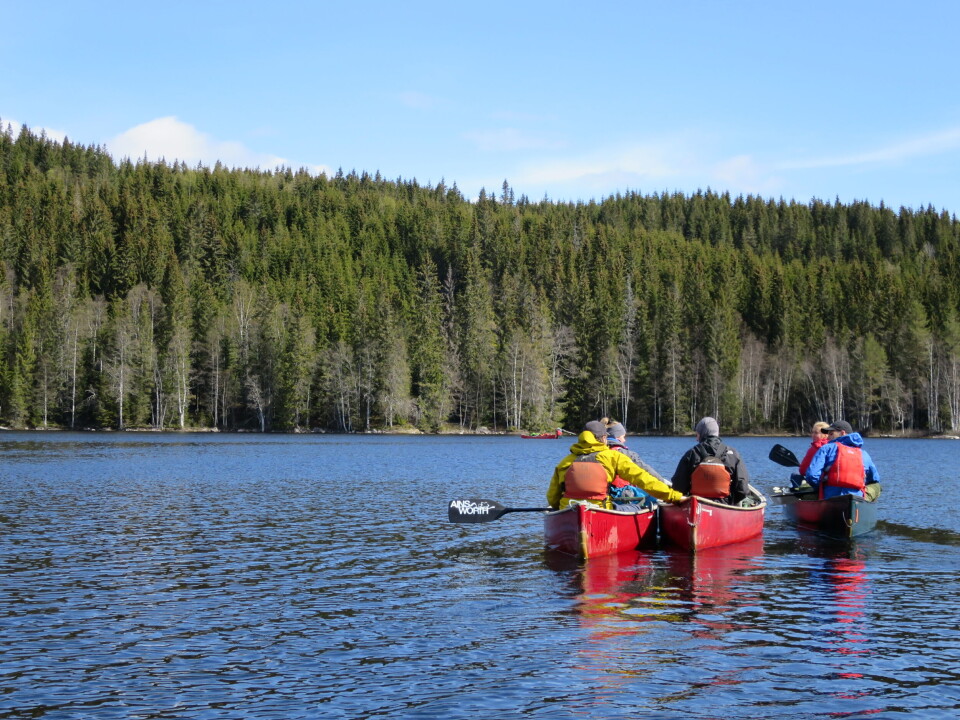
Students want to log off their phones during outdoor trips
How does the smartphone affect students and teachers during outdoor activities? New research shows that students appreciate being out of network coverage in nature.
It can be difficult to find spaces where it is possible to completely disconnect from smartphones in 2024. Hiking in nature can be one of those rare spaces.
It is only deep in the forest or high in the mountains that you might find yourself completely out of range.
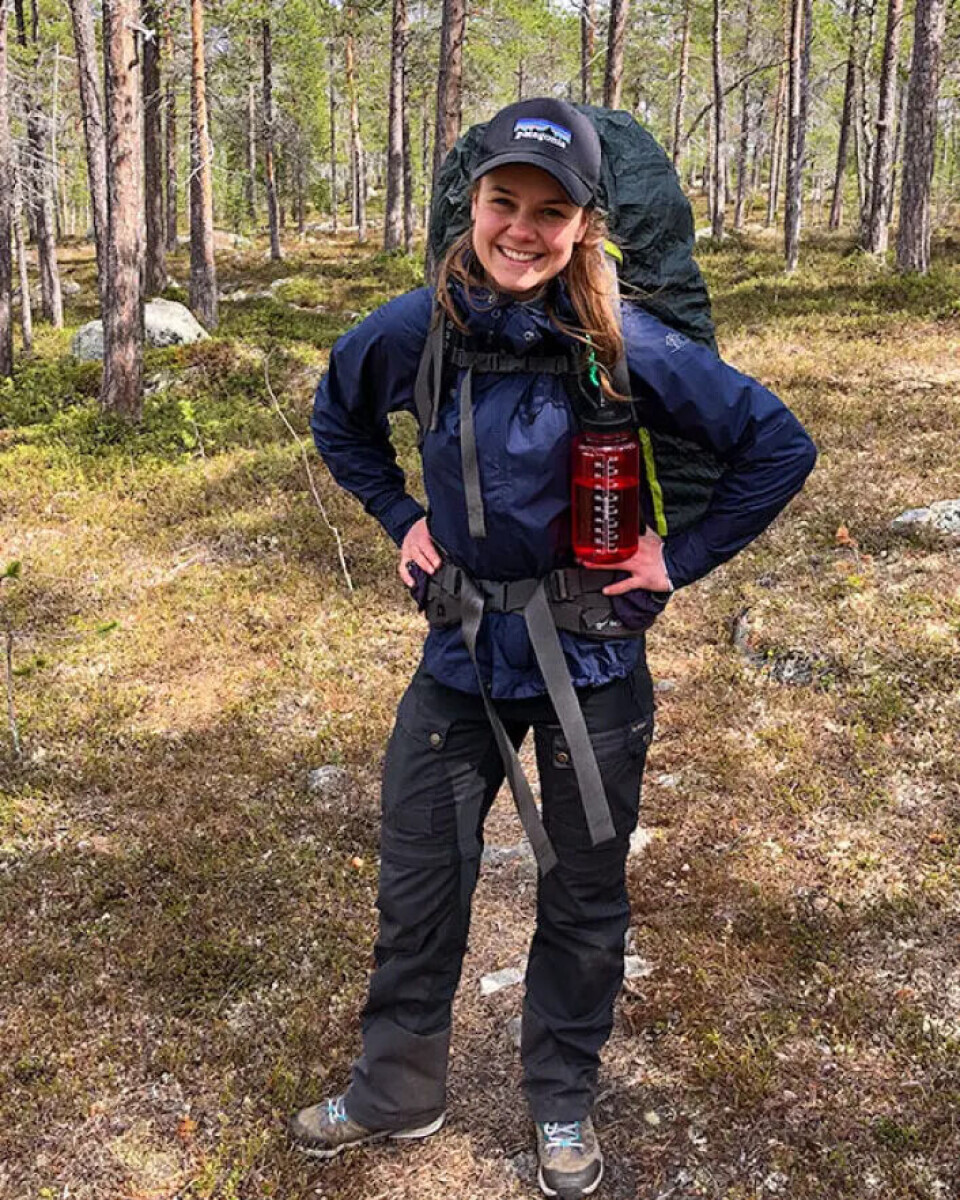
"Many of the students reported a significant difference in the group dynamic depending on whether they had mobile coverage or not," says Imre van Kraalingen, a researcher at the Norwegian School of Sport Sciences' Institute for Teacher Studies and Outdoor Life.
Felt pressured to share on social media
In recent years, van Kraalingen has studied how the smartphone affects teachers and students during outdoor activities at various colleges around Norway.
Her findings show that teachers have gained new opportunities in teaching through new tools for information, navigation, and planning.
However, many also feel that it has impacted how they are present in nature and how the group functions together on a trip.
"They emphasised that having access to a phone and 4G/5G on a trip affected both the social dynamics in the group and the outdoor experience. If they saw something beautiful, their first reaction was very different. With coverage, they would pull out their phones to take a video. Without it, they could simply be present in the moment and enjoy it together," she explains.
Some of the young outdoor enthusiasts also said that they almost felt pressured to post pictures and content from the trips they went on.
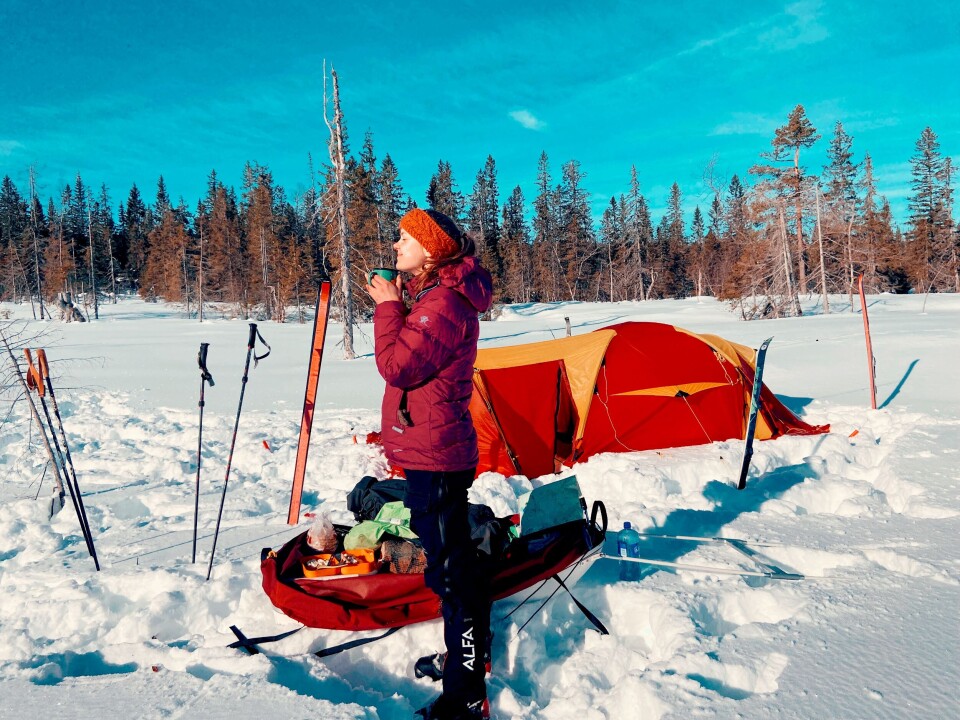
The first thought when experiencing something new was often, "What could I write about this photo on Instagram?"
"Some of them told me that they felt social pressure to post things on social media. When they're out on a trip and encounter something cool, they feel, 'Oh, I have to show people that I'm doing this'," says van Kraalingen.
She believes this has a lot to do with the popularity of outdoor activities.
Want more experiences without their phones
Outdoor activities have truly become trendy on social media in recent years. It is cool to show off that you are on a trip. Entire trends in outdoor activities have also emerged on platforms like Instagram, the researcher explains.
"How many slept in a hammock or made cinnamon rolls from ready-made pizza dough 10 years ago?" she asks, referring to two trends that many probably first saw on Instagram.
But although many are enthusiastic about sharing their love of the outdoors on platforms like Instagram, they also deeply value being disconnected on hikes.
"The students say they really appreciate the time they're disconnected. They're interested in having more experiences without mobile technology. They have a habit of reaching for their phones. As soon as someone else does it, it's easy for others to follow. Then, they feel themselves getting lost in their phones and scrolling," explains van Kraalingen.
Sharing photos can also be positive
Wanting to share glimpses from outdoor experiences with others does not necessarily have to be negative. The researcher believes it's more to do with the timing.
"I believe that sharing pictures from a trip can also give meaning to the experiences you have. It can create a more meaningful learning experience for the students," she says.
She adds that several students mentioned that they usually wait until after their trip to share photos. They noted that the real issue arises when they have internet access while still outdoors, as it becomes a distraction that detracts from being present in the natural environment and their interactions.
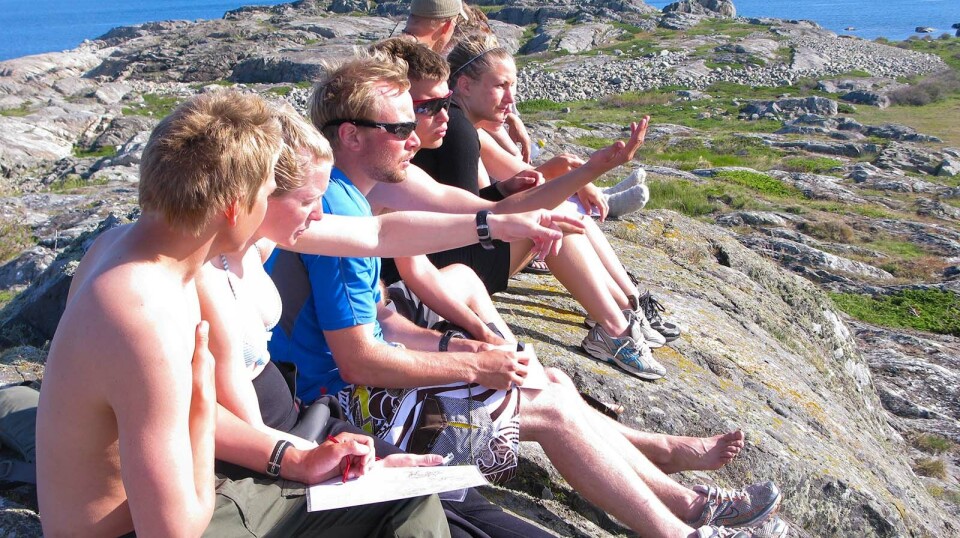
Just as relevant for you as a hiker
van Kraalingen says that the biggest challenge for teachers and students in outdoor activities is probably just as relevant for the everyday hiker with a smartphone in their pocket.
Constant connection to mobile networks can disrupt the full experience of outdoor activities by weakening the sensory connection to the nature around you.
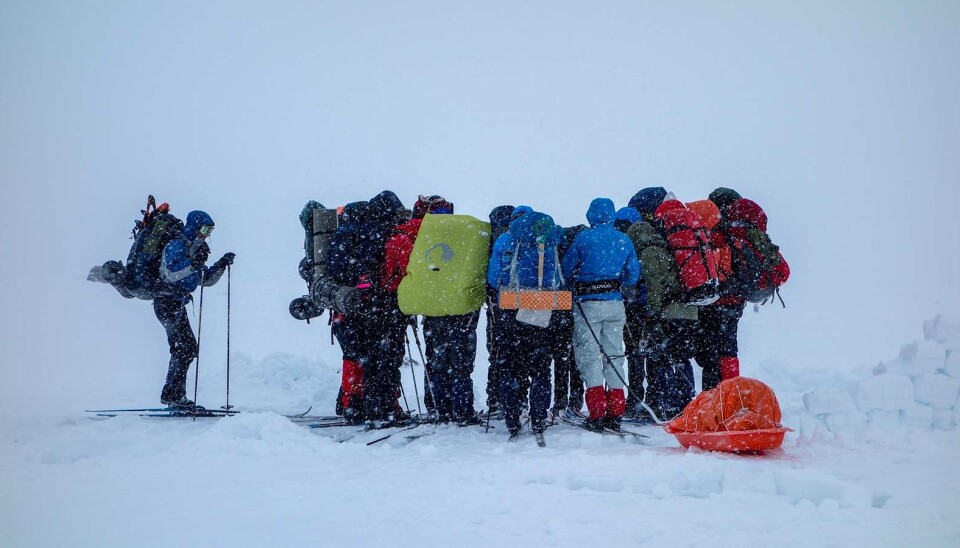
The researcher believes that it can also prevent students from engaging socially with others on the trip, thereby missing out on shared experiences.
"The students weren't worried about phone use affecting their ability to learn necessary skills. For example, using Google Maps doesn’t mean they won’t learn map and compass skills, which some teachers were concerned about," she says, adding:
"What they emphasised most strongly was how phone use affected group interactions and dynamics when they had access to their devices."
Reflect on when your phone should be present
What actually happens to our conversations around the campfire or on a mountaintop when someone pulls out their phone to 'snap' the experience to friends back home?
Both the researcher and the students she interviewed believe it impacts the group dynamic.
van Kraalingen has clear advice for those leading a group on a trip in the outdoors, whether it is a school class, a hiking group, or a family where phone use might be a challenge.
"Find a balance and reflect on when the phone should be used or put away. The students appreciate when teachers encourage them to think about their phone use. They also wanted discussions afterwards about what was positive or negative about using phones on the trip," she says.
Reference:
Imre van Kraalingen: Teaching and Learning with Mobild Technology in Outdoor Studies, Doctoral thesis at the Norwegian School of Sport Sciences, 2024. (NIH website about the thesis)

This content is paid for and presented by The Norwegian School of Sport Sciences
This content is created by The Norwegian School of Sport Sciences' communication staff, who use this platform to communicate science and share results from research with the public. The Norwegian School of Sport Sciences is one of more than 80 owners of ScienceNorway.no. Read more here.
More content from The Norwegian School of Sport Sciences:
-
Football expert wants to change how people watch football at home
-
Kristine suffered permanent brain damage at 22: "Life can still be good even if you don’t fully recover"
-
Para sports: "The sports community was my absolute saving grace"
-
Cancer survivor Monica trained for five months: The results are remarkable
-
What you should know about the syndrome affecting many young athletes
-
New findings on how athletes make the best decisions




































